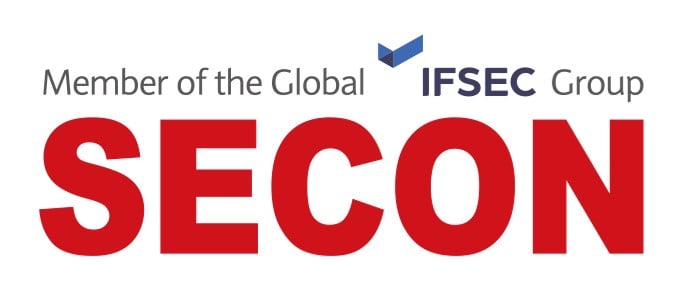
Jamie Wilson, security marketing manager EMEA at NICE Systems tells IFSEC Global why he believes the ‘safe cities’ concept is so exciting and how the PSIM specialists’ project at the Sochi Olympics sets a template for integrated urban security.
IFSEC Global: What’s NICE Systems doing the security arena right now?
Jamie Wilson: We had $1bn worth of bookings last year, which is great.
I think traditionally, people have seen NICE as an audio recording vendor and that is where we started out. But we do so much more than that.
On the security side we provide software solutions to minimise risk and improve ROI, so it’s really high level. We operate in a range of verticals, and strong verticals for us are rail, airports, banking, public safety – so the police, fire, ambulance – and we offer a range of solutions that manage security incident lifecycles.
So it’s from trying to predict if something is going to happen, then the situational awareness – where is it, what’s going on, what do I need to do? The management part of it. Then it’s the review and debriefing to see exactly what happened and how we improve it.
IG: OK, so that’s the broad overview. Can you think of a more specific example of NICE applications in action?
JW: We had a PSIM solution at the Sochi Olympics in their control room which was linked with street cameras and critical building infrastructure. Any overcrowding, suspicious baggage…
Traffic management as well. So if there was a road accident they could block the road, redirect traffic, send ambulances, that kind of thing.
They had our visual solutions, as we call it – so camera recording – our situator solution – the control point in the middle with our workflows – and our informed solution, which offered debriefing and investigation, so they can replay videos against audio recordings. Did we do the right things? Do we need to tweak our workflows?
It redefines your response to an incident. So everybody follows the right process, you haven’t got dusty books on the shelf in the corner that people run to.
Russia also has the next World Cup coming up and the F1 next year, so all these massive sporting events have fired them up to adopt a safe-city approach.
Kings Cross is another great example. LAX Airport. What I find really interesting is that if an aeroplane terminal shuts down for an hour, it costs on average, I think, around £16,000, so anything you can do to prevent that is great – for example, if a suspicious bag in the terminal was just forgotten luggage.
If you can identify that quickly then you don’t have to be a rocket scientist to do the ROI on it.
IG: Counter-terror is a obviously a big driver in helping you sell PSIM solutions…
JW: Yes, People want a solution in place if the worst-case scenario happens. But what you actually find is there are loads of everyday incidents.
We’ve got a really good case study in the Millennium Bank in Portugal where they were getting hundreds of false alarms because somebody hadn’t set the system right.
The police would charge the bank for every callout caused by a false alarm. If you can reduce those false alarm calls by 50/60% then again, you get a massive ROI.
Network Rail get fined about £70 per minute for a delay and got something like 11 million minutes worth of delays a day.
Counter terror is vital but it’s a very rare event. Our systems actually also help the smooth operation of your business and save you time and money.
IG: Sure. So I’m a facilities manager and I’m sold on the idea of installing a PSIM solution. Why should I buy one from NICE and not a competitor?
JW: A few reasons. We’re an established company – we’ve been here for 20 odd years, continually growing, financially very stable, NASDAQ listed.
That’s important to customers who invest in a solution that needs support for 10 years. If something goes wrong with that system you need to know that we’re not going to go bust.
I suppose there is always a risk that if you go with the less well known competitor, with a less secure foothold in the market, if they go bust then you’re not going to get any upgrades. I don’t want to over-labour the point because it could come across as a bit arrogant.
It’s just an absolutely key consideration. If you’re Kings Cross with ‘X’ amount of money, you don’t want your supplier to disappear.
And we’re cutting edge, innovative. We were in Fast Company’s top 50 most innovative companies in the world and the most innovative one in finance [for its work protecting banks].
IG: And what about installers?
JW: We work with system integrators. Though the headline projects like Sochi, LAX and Kings Cross are huge, we also have products that start very small and are very targeted.
If you have three or four security sensors in your building, access control and fire detectors, we have solutions that allow customers to expand, which I think is interesting to installers, particularly some of the smaller integrators and other partners.
IG: A lot of your business is centred around managing data, isn’t it?
JW: We’re trying to let people do what they are good at and make decisions based on the right information, and if you have the right information at the right time you can make the right decision.
In Sochi we had 1,400 cameras and you can’t be having somebody staring at 1,400 screens simultaneously; you need a way of consolidating that.
And we can learn from how incidents are handled to improve future responses and to reduce the chances of that incident happening again.
IG: Companies obviously have a big responsibility in terms of storing and deleting data according to data protection laws…
JW: There is an issue in needing to record certain things, keep them for a certain period of time, and pull out information if a regulator requests it.
Police forces need to store data for murder enquiries for seven years or something. The police use our recorders and our debriefing and investigations solutions to share information internally and with other agencies.
IG: What one issue in the security industry is particularly interesting to you right now?
JW: If I had to pick one I’d pick ‘safe cities’. At NICE we’re working with many big cities who are seeing the benefit of linking up all their sensors into a control room like Sochi did.
And they are all different as well, they all have their own needs.
I think it’s a really exciting direction – everything become integrated. It’s no longer about silo security solutions.
I talked to the manager at Excel a few months ago and he was saying how busy it was during the boxing matches at the Olympic Games. An integrated system might pick that up and get more trains in to alleviate the congestion and bring in more security staff.
If the cameras and sensors are linked up to other parts of the city’s infrastructure, it becomes a powerful tool in reallocating resources.
Sometimes people miss the massive operational benefit you get from these kind of solutions. It can really save money and resources.
Free Download: The Video Surveillance Report 2023
Discover the latest developments in the rapidly-evolving video surveillance sector by downloading the 2023 Video Surveillance Report. Over 500 responses to our survey, which come from integrators to consultants and heads of security, inform our analysis of the latest trends including AI, the state of the video surveillance market, uptake of the cloud, and the wider economic and geopolitical events impacting the sector!
Download for FREE to discover top industry insight around the latest innovations in video surveillance systems.







